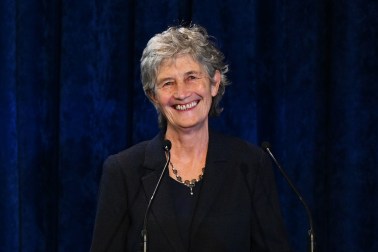Aidan Hartley’s Wild Life
Israel
Jerusalem was once a very sad place for me and I feared returning. I was mad with grief when I was last here in the 1990s. I remember my friend Julian tried to cheer me up by taking me to a gun shop where a South African who had made aliyah gave us M16s and boxes of ammo that we took down to a range to blast away at images of terrorists. It didn’t do any good. I came down with malaria, a parasite hung over from years of reporting African wars. ‘Africa?’ said the Israeli doctor. ‘We’ll run an HIV test. You might have Aids.’ ‘I’ve got malaria.’ He returned an hour later and said, ‘You’ve got malaria.’
In those days I had a girlfriend in Jerusalem. She became so sick of me she spent two weeks shouting as I lay in bed. I didn’t hear a thing. I was on such strong quinine drugs that I went entirely deaf from tinnitus. When I regained strength I packed my stuff and tottered over to the Church of the Holy Sepulchre. I was tearfully praying for something good to happen in my life when an Armenian priest came over and tried to pick me up. Then a lunatic assassinated Yitzhak Rabin. It was awful. But while the peace process in the Middle East collapsed, the prayers worked for me at least and here I was again, alive and paunchy at 46, touring the holy sites with a spring in my step.
The next day I crossed into the Gaza Strip with TV producer Richard Cookson to make a documentary. In the 1990s the checkpoint at Erez was a simple affair. Thousands of deaths and missiles later, it has become an outrageous thing to behold: concrete walls, zeppelins, razor wire and machine-gun nests. You just have to stand at the border of Gaza, listening to Israeli teenage soldiers fire randomly into no-man’s land, where no doubt rockets are being launched outwards, to know things have got a lot worse.
Life for 1.5 million Palestinians cooped up here is very hard, and yet we were constantly treated to scenes of great humour and fortitude. Our fixer in Gaza was Azmi, an intensely energetic journalist who stays positive against all odds. ‘Everybody should be miserable,’ I observed, looking out at piles of rubble, garbage and poverty. But Azmi saw only a paradise of potential. ‘There is nowhere like Gaza,’ he said. ‘It’s amazing,’ he kept saying. His enthusiasm was infectious. I found myself always in a good mood.
We did film some terrible things. It will be hard to get over the memory of speaking to a nine-year-old child called Yusuf. The boy wept as he told me the story of how he had lost his right arm to cancer. He couldn’t get a prosthetic limb because all the materials to make one had been held up in an Israeli warehouse for eight months.
Gaza still lives under what the Palestinians call ‘the siege’. Militants still fire rockets into Israel, which responds with jet air strikes and missiles launched from drones.
One night we arranged to interview the military wing of Islamic Jihad. As we stumbled across an olive grove in the darkness and found ourselves surrounded by gunmen in black balaclavas, I had that familiar sinking feeling. ‘We are going to be taken hostage and killed,’ I thought. Inside the militia’s lair, I couldn’t see the faces of the men we interviewed. They politely offered us tea.
Back outside, the night sky was suddenly filled with drones. They circled a few hundred feet above us, making the sound of lethal lawnmowers. I imagined a 23-year-old Israeli conscript operating a joystick and looking down on us, a group of middle-aged hacks surrounded by gunmen. ‘Now we’re going to be blown up by the Israelis,’ I thought.
These are the sorts of things that caused me such grief all those years ago in Jerusalem. The world has always been going to hell and ‘there is nothing good or bad, but thinking makes it so’.
Azmi declared we would celebrate our survival by having a barbeque on the beach. We roasted piles of delicious crabs called salat ein over hot coals and stuffed ourselves. Afterwards, we smoked water pipes and watched red illumination flares fired out to sea by patrolling Israeli gunboats. Richard told me about the pigs he raises at home in Somerset.
‘Life is like a cucumber,’ reflected Azmi. ‘One time it’s in your salad. Nine times it’s up your bum.’ How very true.






Comments